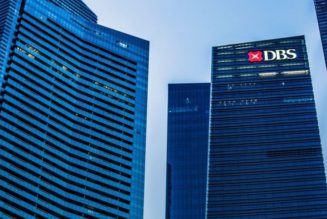Columnists
Safaricom share price dynamics
Friday May 19 2023
Nairobi Securities Exchange. FILE PHOTO | DIANA NGILA | NMG
Why is the Safaricom share trading way below the intrinsic valuations by most independent analysts?
The share price has declined since December 22 last year when it was trading at around Sh24 to around Sh13 in recent weeks.
We, journalists, are not investment bankers. I just make sure that I speak regularly to professional analysts and independent valuers.
I try to track trends in quarterly, annual report and look for clues in the latest releases by rating agencies.
This is how I try to make sense of and look for explanations for happenings in this rarefied atmosphere of high finance.
I must confess that I also enjoy nosing around lawsuits about trading public companies.
In the case of Safaricom, it seems to me that there is a major disconnect between the stock price and what the mandarins of high finance call fundamentals: profitability, dividend payment record, growth trajectory, and so on.
Clearly, the share price does not respect current independent valuations.
For instance, when I look at the trends and opinions of 12 independent analysts that publish on Bloomberg, this is what I see.
Not a single of these 12 independent analysts has a ‘sell’ recommendation. They advise you to hold on to the stock.
As a matter of fact, eight of the analysts recommend ‘buy’. But even more illuminating are the projections and predictions of independent analysts about the price of the share in the next 12 months- what they refer to in their jargon as the ‘target price’.
I do not want to cram the column with numbers and statistics with information that is available in the public domain for everybody to see.
The point is that literally all the 12 analysts who publish on Bloomberg indicate target prices that are way higher than the price at which the stock is trading right now.
One of the analysts has a target price nearly three times the price at which the stock is trading currently.
Clearly, the Safaricom stock is trading at a significant discount, below the market consensus target price.
What –exactly- is playing out? Explanations are wide-ranging. But me thinks that what we are witnessing here is a compelling study on what obtains in a situation where a disproportionately large share of stock of a domestic company is in the hands of foreign investors.
The elevated weighting that foreign investors give to country risk is a big factor. This type of investor will be inclined to drop a stock even when the material happening at play is a development as peripheral as when suddenly the sovereign is facing difficulties in paying salaries to civil servants.
I am not suggesting that foreign investors are bad. It is just that my nationalistic instincts yearn for a time when local institutional investors will be more influential in this space.
To appreciate the foreign investor factor in the riddle of the disconnect between the price of the stock and the company’s fundamentals, here are the statistics on trading activity at the NSE in the week of May 8, to 12.
This, by the way, was the activity after Safaricom announced its results on May 11. During the week, foreigners ‘buys’ and ‘sells’ in the Safaricom counter accounted for 81percent of the foreign trades at the bourse.
Clearly, Safaricom’s place in the whole marketplace puts it in a predicament where it is always the one to bear the brunt of exposure to selling pressure, especially from brittle and touchy foreign investors immoderately sensitive to the country’s risk factor.
The state of the Shilling is yet another factor. With the depreciation of the currency and high forex rates, foreign investors have been finding it difficult to repatriate share sales proceeds out of Kenya.
In recent weeks, the Safaricom stock has also faced pressure from increased demand especially after the government started accepting higher bids for bonds.
With Central Banks in the developed markets raising rates rapidly, precipitating an increase in bond yields in those markets, flight to safety has also become a factor.
The rating agency, Moodys’ has only recently reviewed Kenya’s credit rating to B3 from B2 and placed it on review for a further downgrade.
The downgrade means that Kenya is now classified as ‘high credit risk’ just one level above ‘very high credit risk’.
Since 2008 Safaricom has paid out dividends to its shareholders worth Sh517.9 billion.
The company has consistently had a dividend payout ratio of 80 perccent of net income excluding minority interest.
It has geographically extended to Ethiopia where it has witnessed encouraging uptake since it launched operations in October last year.
At the beginning of this article, I posed the question: Why is the Safaricom share trading way below the intrinsic valuations by analysts?
The answer: Fear, the dominant factor, has no respect for old-fashioned notions like facts and fundamentals.
The writer is a former Managing Editor, The East African newspaper.









